News
Read below IAU news both from the Association and from its Members. Search or filter news by category (IAU or Member News), as well as by subject matter.
Category

University Leadership in Context: Reflections from the IAU–UNESCO Campus Africa Leadership Lab
From 5-9 December 2025, the IAU - UNESCO CFIT III - Campus Africa Leadership Lab brought together university leaders from across Africa for an intensive programme dedicated to strengthening institutional leadership in a rapidly changing higher education landscape.

75 Years of the IAU
On 9 December 2025, the International Association of Universities celebrates 75 years of collective commitment to strengthening higher education worldwide.

IAU at the 2025 Magna Charta Observatory Conference
The IAU was pleased to participate in the 2025 Anniversary Conference of the Magna Charta Universitatum (MCU), held at King’s College London and hosted by the Magna Charta Observatory (MCO).
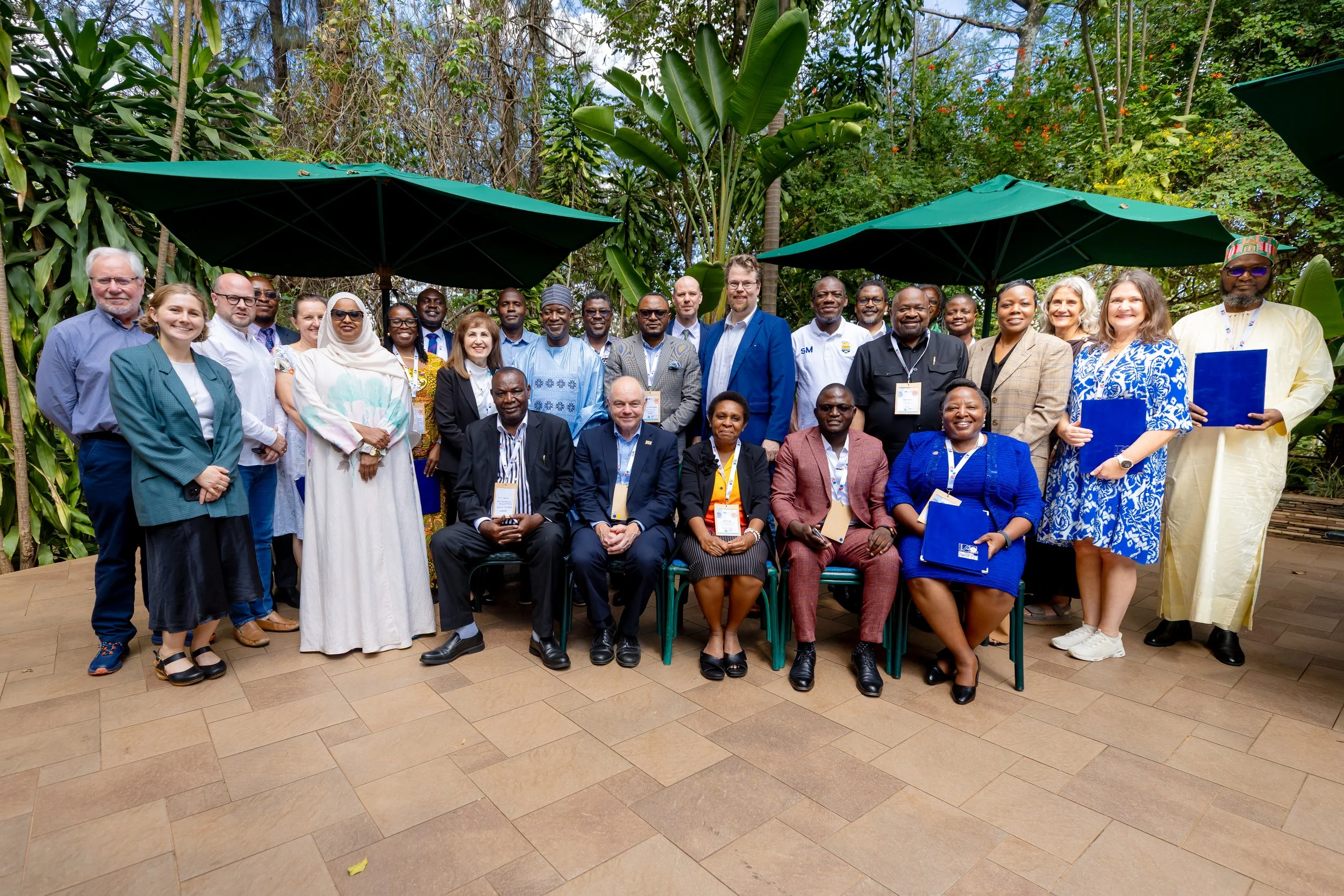
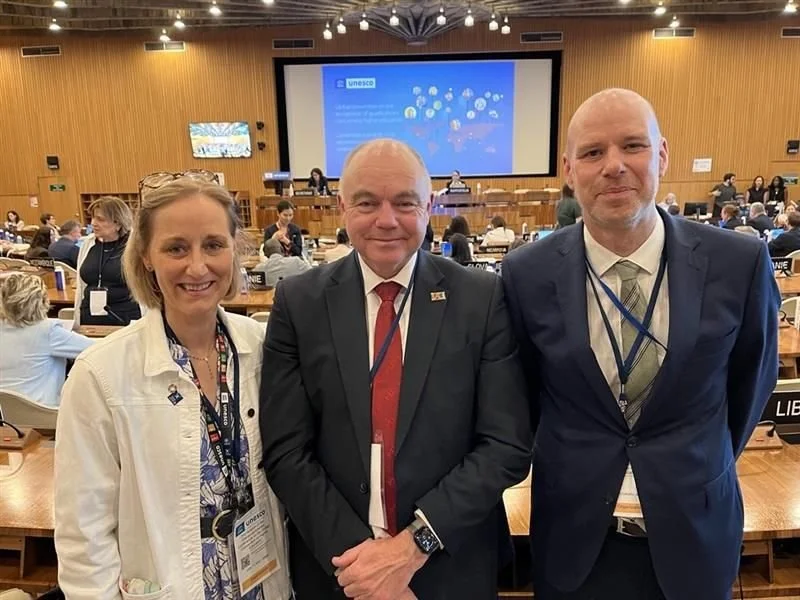
Advancing Fair, Transparent, and Cross-border Recognition of Higher Education Qualifications
The International Association of Universities (IAU) is honoured to participate in the Second Session of the Intergovernmental Conference of the States Parties to the Global Convention on the Recognition of Qualifications concerning higher education, held on 25 June 2025 at UNESCO Headquarters in Paris. The IAU is represented onsite by IAU President Andrew Deeks, President and Vice Chancellor of Murdoch University, Australia; IAU Secretary General Hilligje van't Land; and IAU Deputy Secretary General Andreas Corcoran.
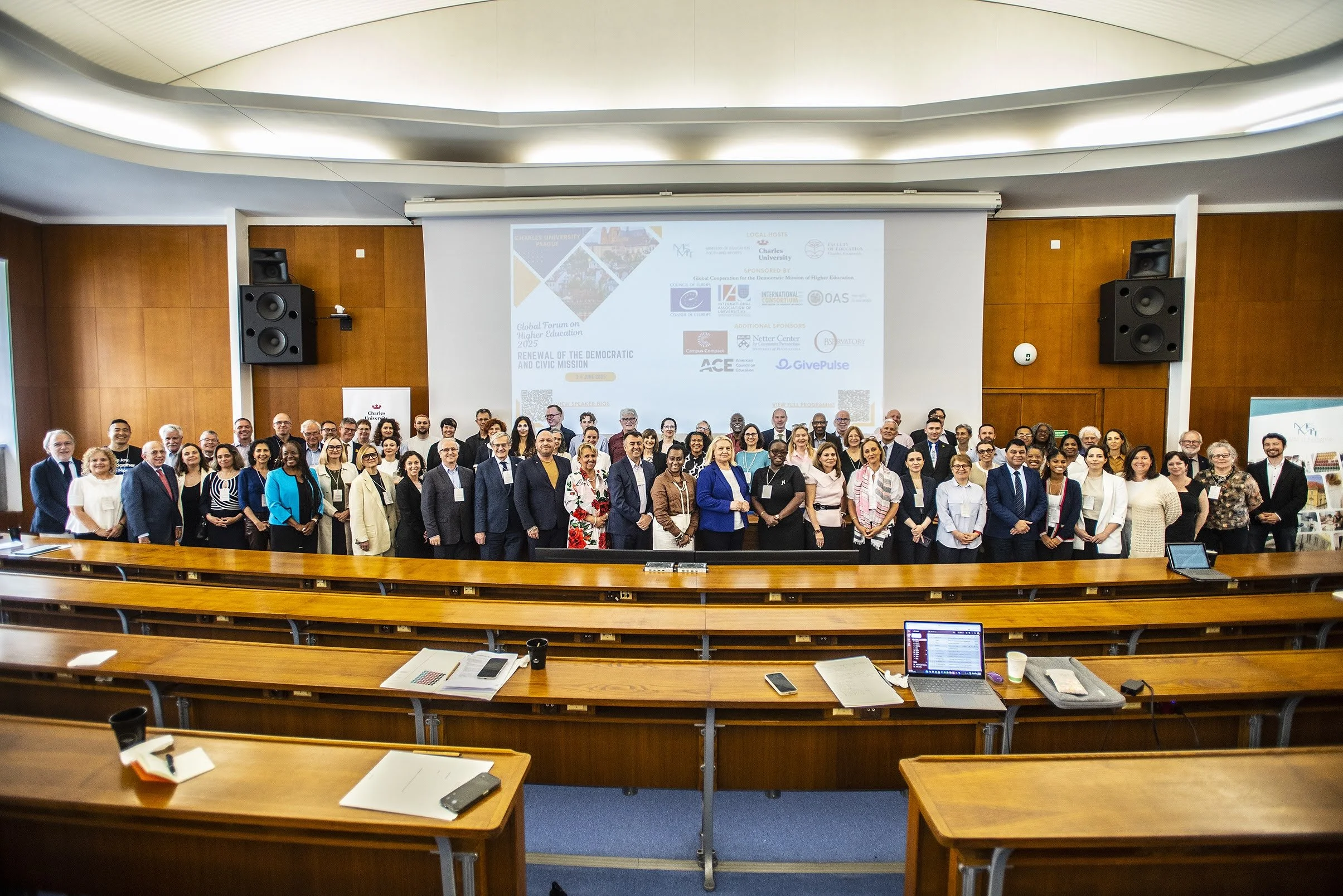
What Role for Universities in Democracy?
In early June 2025, the Global Forum convened at Charles University to reflect on the evolving role of universities in fostering democratic societies. In a time marked by polarization and declining trust in institutions, the Forum offered a timely space for dialogue on how Higher Education can—and must—rise to the challenge.
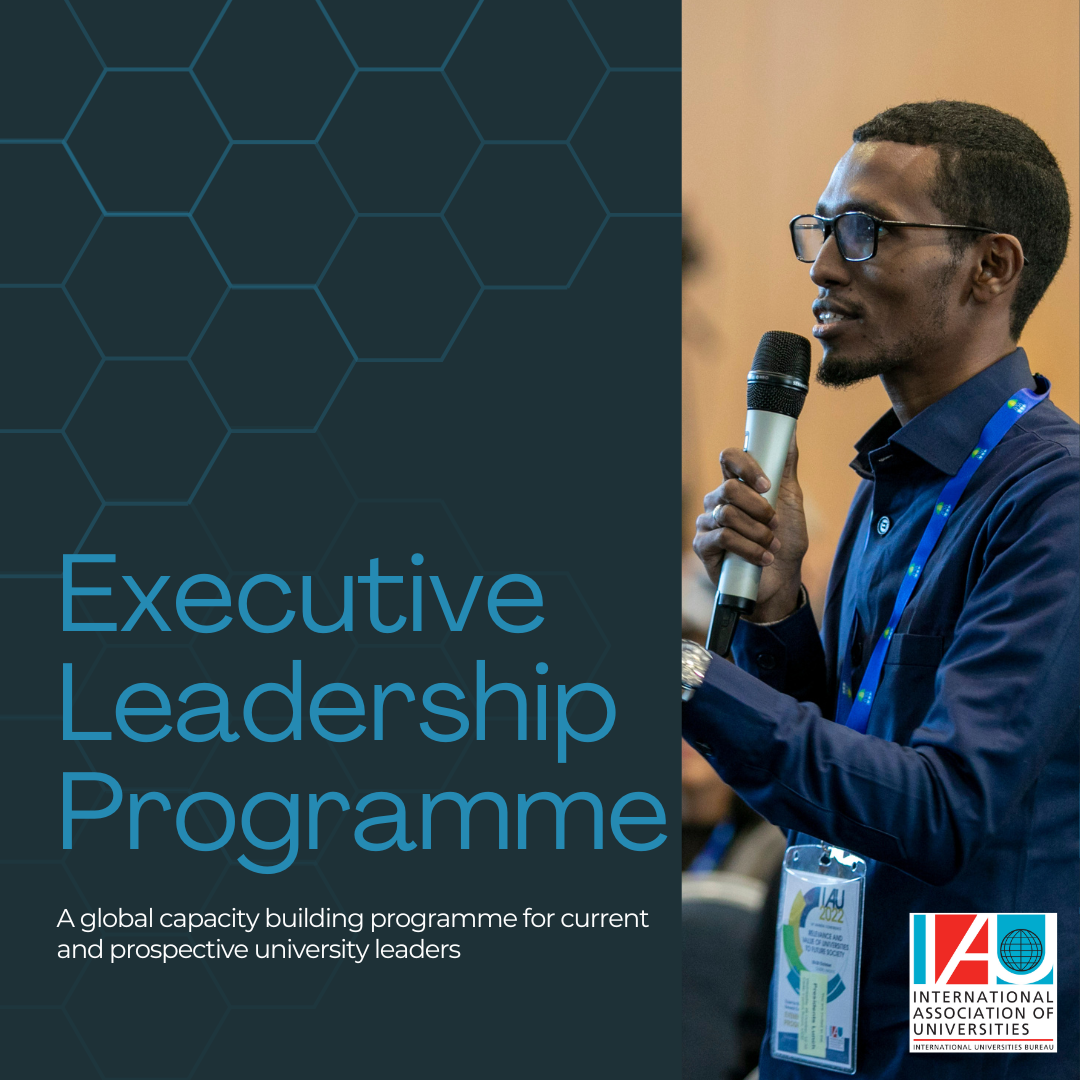
Application Deadline Extended: ELP 2025-2026
The IAU is pleased to announce that applications for the 2025-2026 cohort of the IAU Exeucitve Leadership Programme are now open! This cohort of the programme will meet from 24 October 2025 immediately following the IAU 2025 International Conference in Kigali, Rwanda through Autumn 2026.
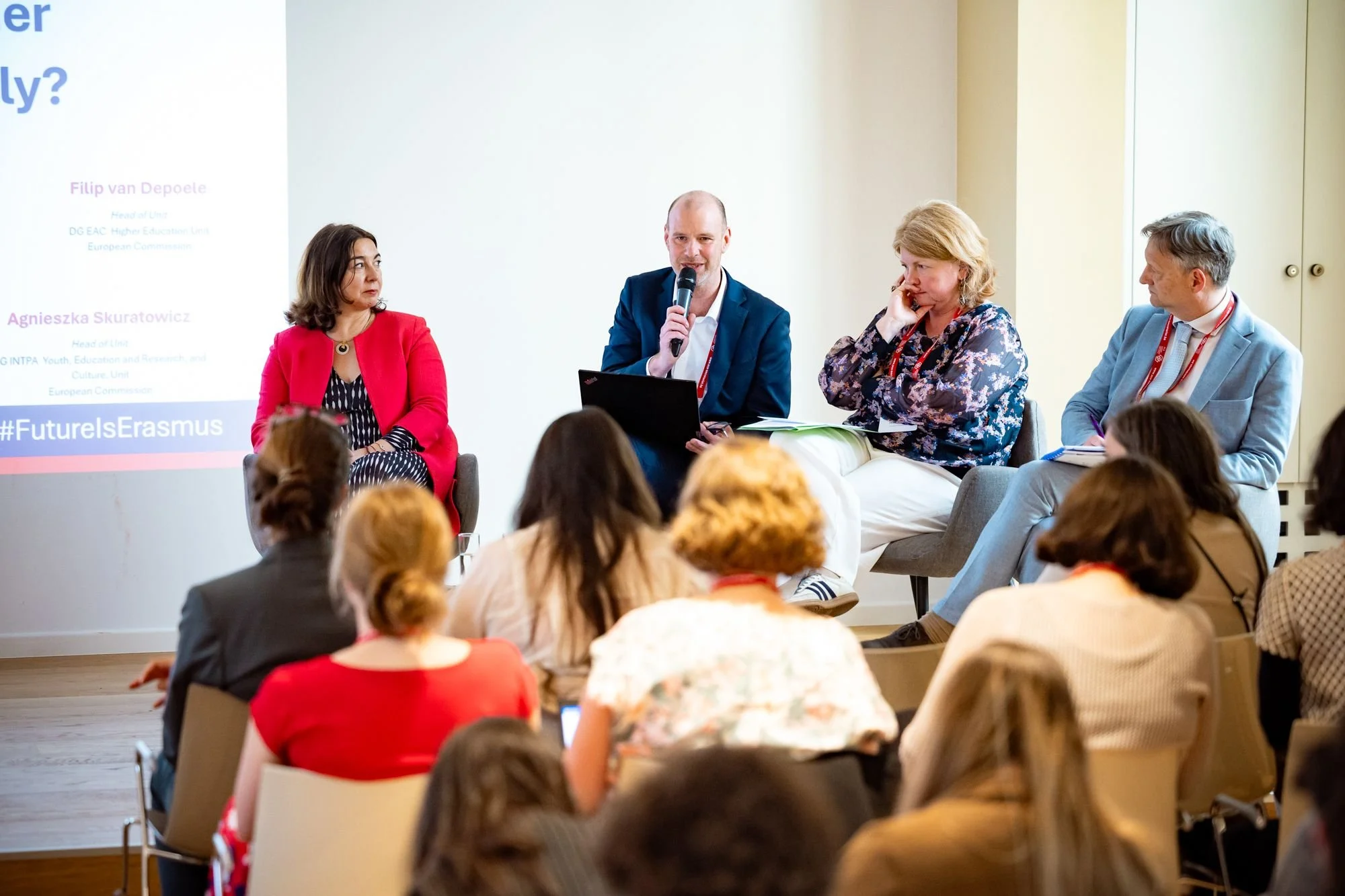
Shaping the Future of Erasmus+: IAU Contributes to Strategic Dialogue on Academic Mobility and Cooperation in Europe
On 29 April 2025, the IAU joined a key policy dialogue on the future of European academic mobility and cooperation, held in Brussels under the title “The Future of Europe = The Future of Erasmus+.” Organized by the Academic Cooperation Association (ACA) in collaboration with five of its members—DAAD (Germany), HK-dir (Norway), DZS (Czech Republic), Movetia (Switzerland), and VLUHR International (Flanders)—the event brought together a wide range of higher education stakeholders to reflect on the evolution of the Erasmus+ programme.
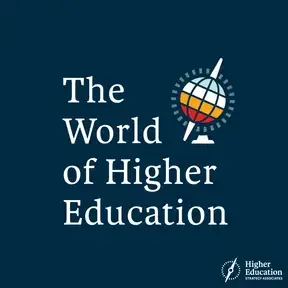
Connecting Universities in a Divided World
When higher education institutions are deeply rooted in their national contexts, it can be challenging to see beyond familiar frameworks. Local policy concerns, cultural norms, and political pressures all shape institutional priorities—and rightly so. But without engaging with global perspectives, how can institutions effectively reflect on their role in a rapidly changing world?
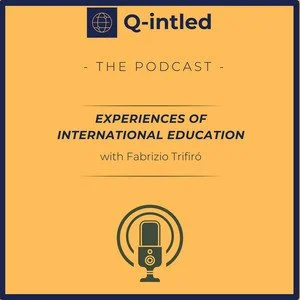
Fostering a Global Conversation and Cooperation in Higher Education
What is higher education for? What does it mean for international higher education to be fair and ethical? Where does transnational higher education sit in the balance bewteen cooperation and competition? IAU Deputy Secretary General Andreas Corcoran recently discussed these questions, amongst others, with Fabrizio Trifirò on the latest episode of the "Experiences of International Education" podcast.
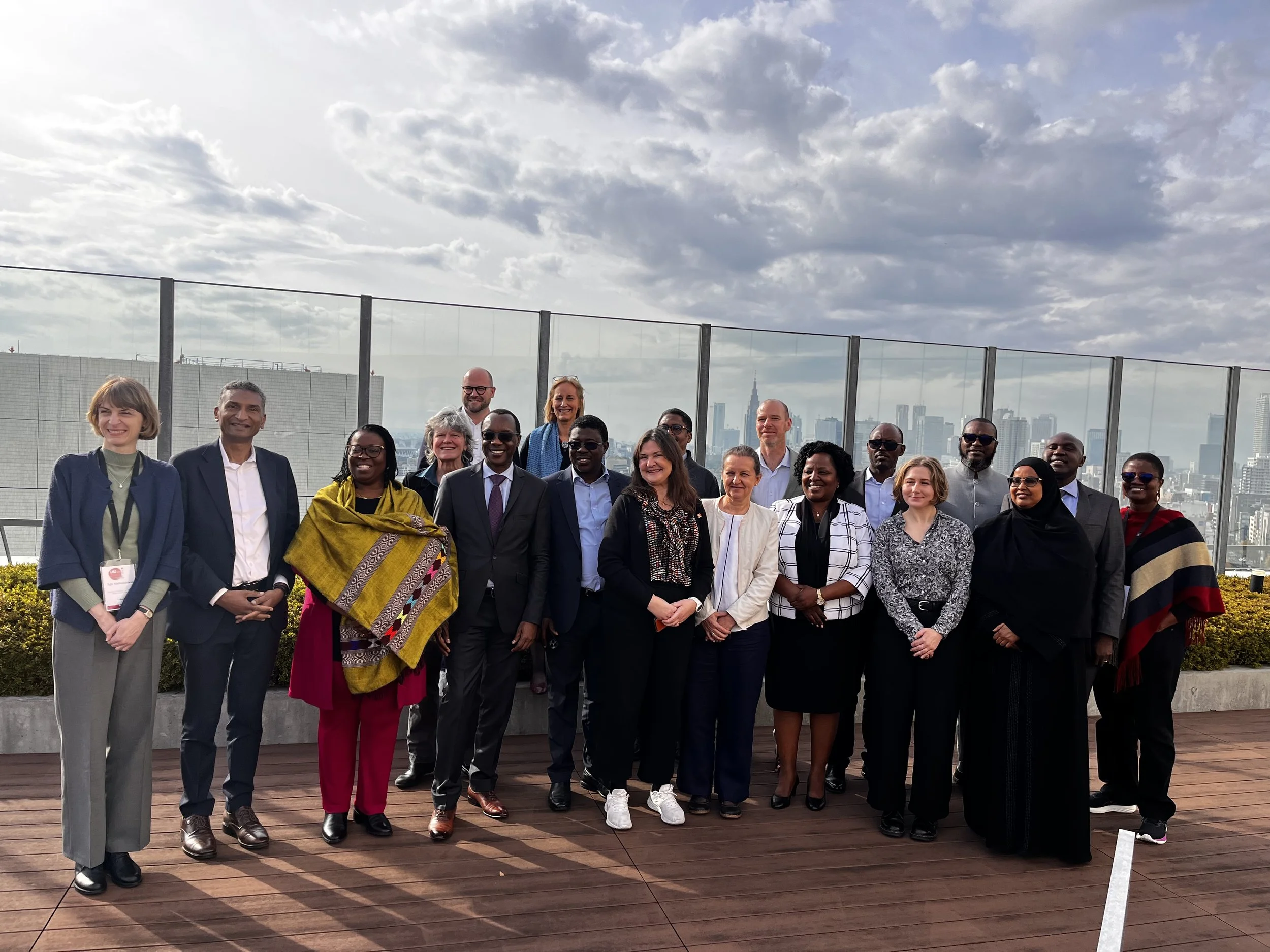
ELP Gathers Higher Education Leaders in Tokyo
In November 2024, the IAU marked a significant milestone in its Executive Leadership Programme (ELP) by celebrating the graduation of the 2023–2024 cohort and welcoming the launch of the 2024–2025 edition. The event, hosted at Sophia University in Tokyo, Japan, convened senior higher education leaders from around the world for several days of intensive learning, collaboration, and forward-looking dialogue.
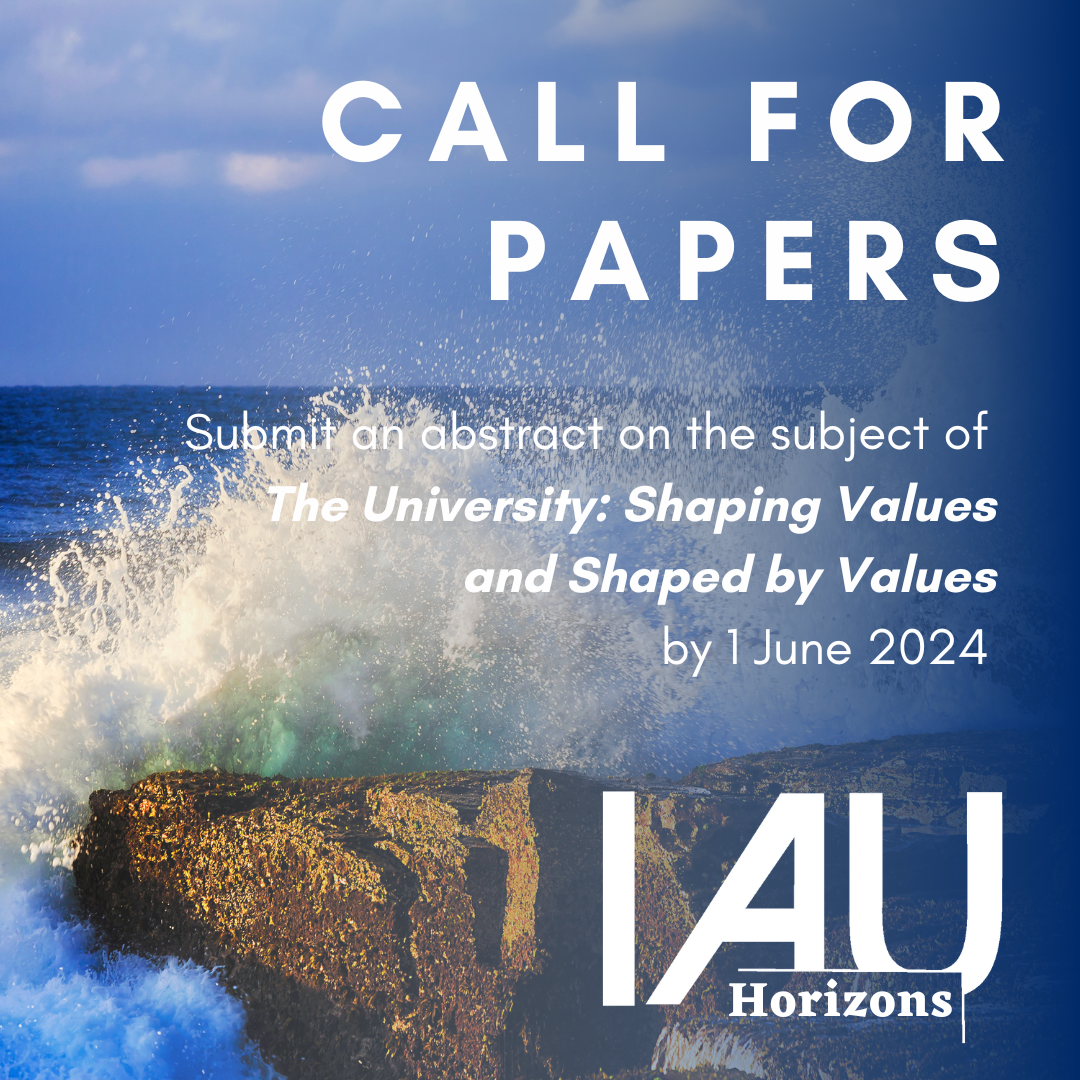
IAU Horizons 29.2 - Call for papers on The University: Shaping Values and Shaped by Values
This issue of IAU Horizons invites contributions that discuss the values that are needed to address the great challenges of our time. It also invites reflection on whether, amid our rich and diverse set of cultures and traditions, higher education institutions around the world share a set of distinct values? What will be the future of traditional academic values, such as autonomy, academic freedom, and research integrity? What role do values play in the social trust accorded to universities?

Apply Now: Executive Leadership Programme (ELP)
The ELP provides a framework with which to confront the big managerial, ethical, economic and societal questions universities are facing or will face.
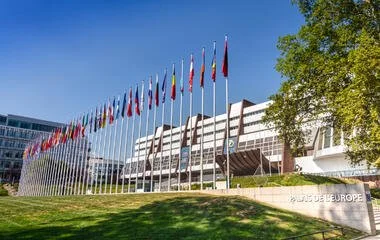
Why Higher Education Must Develop Democratic Competences
“Why Higher Education Must Develop Democratic Competences” was published by Sjur Bergan, head of the Council of Europe’s Education Department and a long-time member of the Bologna Follow-Up Group and Hilligje van’t Land, Secretary general, International Association of Universities, 18 September 2021.
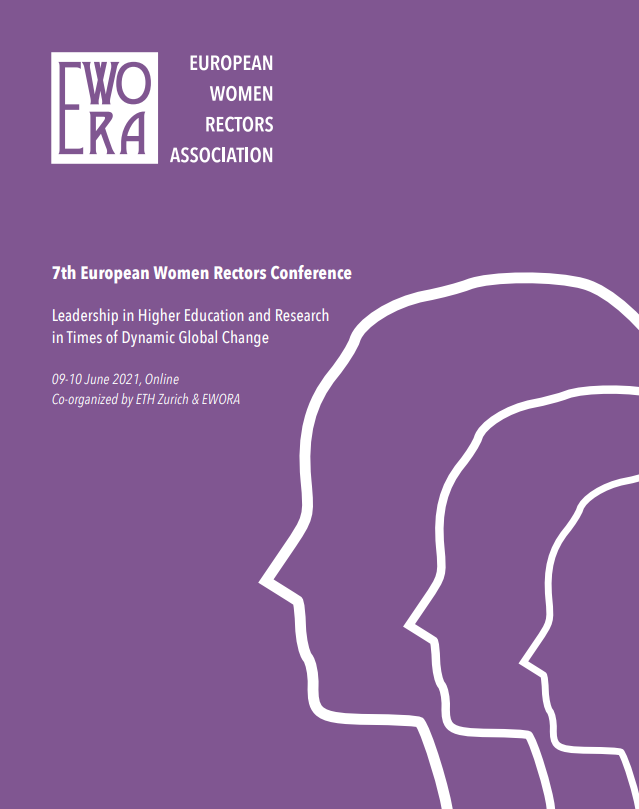
Gendered Impacts of the Pandemic in the Context of Higher Education Globally
“Gendered Impacts of the Pandemic in the Context of Higher Education Globally” , paper by Pam Fredman, President, International Association of Universities and former Rector Gothenburg University, Sweden, delivered at the EWORA 7th Conference, June 2021.
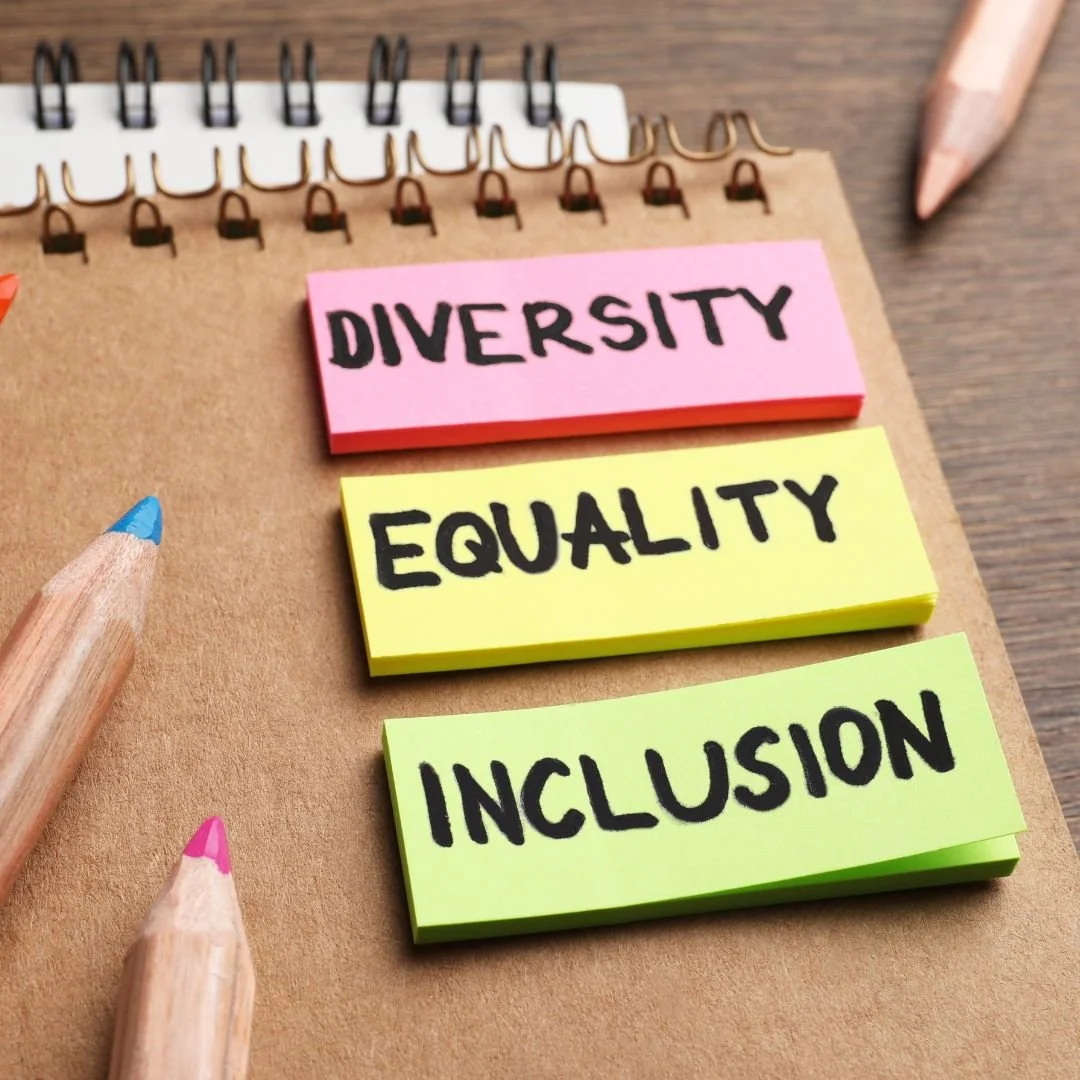
The Fight for Diverse, Inclusive, Antiracist and Just Democracies
“The Fight for Diverse, Inclusive, Antiracist and Just Democracies: it requires disruptive change in higher education’s values, use of resources and privileged place in many societies”. Written by KerryAnn O’Meara, Ahmed Bawa, Hugo Garcia, Ira Harkavy, Rita Hodges and Hilligje Van’t Land in Inside Higher Education, 4 May.
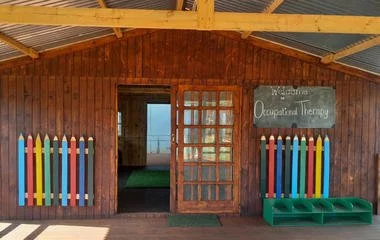
University on a mission to help people change their lives
“University on a mission to help people change their lives” was published in University World News by Siphosethu Nxumalo in 2021. The paper reports on a webinar on ’How can universities improve their social impact?’, available on the University World News YouTube Channel here. The webinar was held on 27 January, with 2,200 registered participants
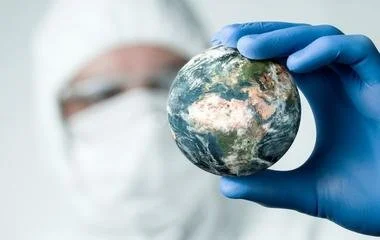
Universities Must Help Shape the Post-COVID-19 World
“The world will never be the same again.” This is perhaps the least hazardous prediction one can make about the consequence of the COVID-19 crisis. This crisis will surely change all societal institutions, not just the healthcare sector. The precise nature of that change is, at this time, unknowable. The safe prediction that the world will change leaves open the form and direction this change will take. But it cannot and should not be left unguided, subject to those seeking to re-establish old systems of power. We contend that higher education must play a major role in helping to shape the post-COVID-19 world and do so by reshaping higher education itself.
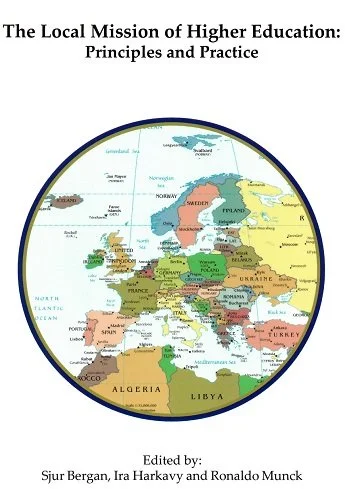
The Local Mission of Higher Education: A Global View
In October 2018 the Council of Europe and the Anchor Institutions Task Force organized a conference at Dublin City University on the local mission of higher education. The conference gave rise to a book that has just been published by Glasnevin Publishers. Edited by Sjur Bergan (Council of Europe), Ira Harkavy (Anchor Institution Task Force) and Ronaldo Munch (Dublin City University), the book discusses the local mission of higher education as a European challenge, provides examples of how eight European universities work with their local communities, and also includes two articles offering a South African and a global perspective, respectively.

Why Bother with Values in Higher Education?
In many parts of the world, the discussion about values that underpin higher education and are important to institution of higher education, is becoming more and more frequent. Though relatively little empirical research has been done on the reasons for this resurgence of interest in values and principles, it is this author’s opinion that a number of societal challenges, increased number of moral dilemmas brought about by technological capacities, as well as, at times, a questioning of university relevance, are among the reasons for university leaders, faculty and students (sometimes together and sometimes separately) to call for a renewed reflection about the values that drive higher education and for values to be better embedded in university actions.
